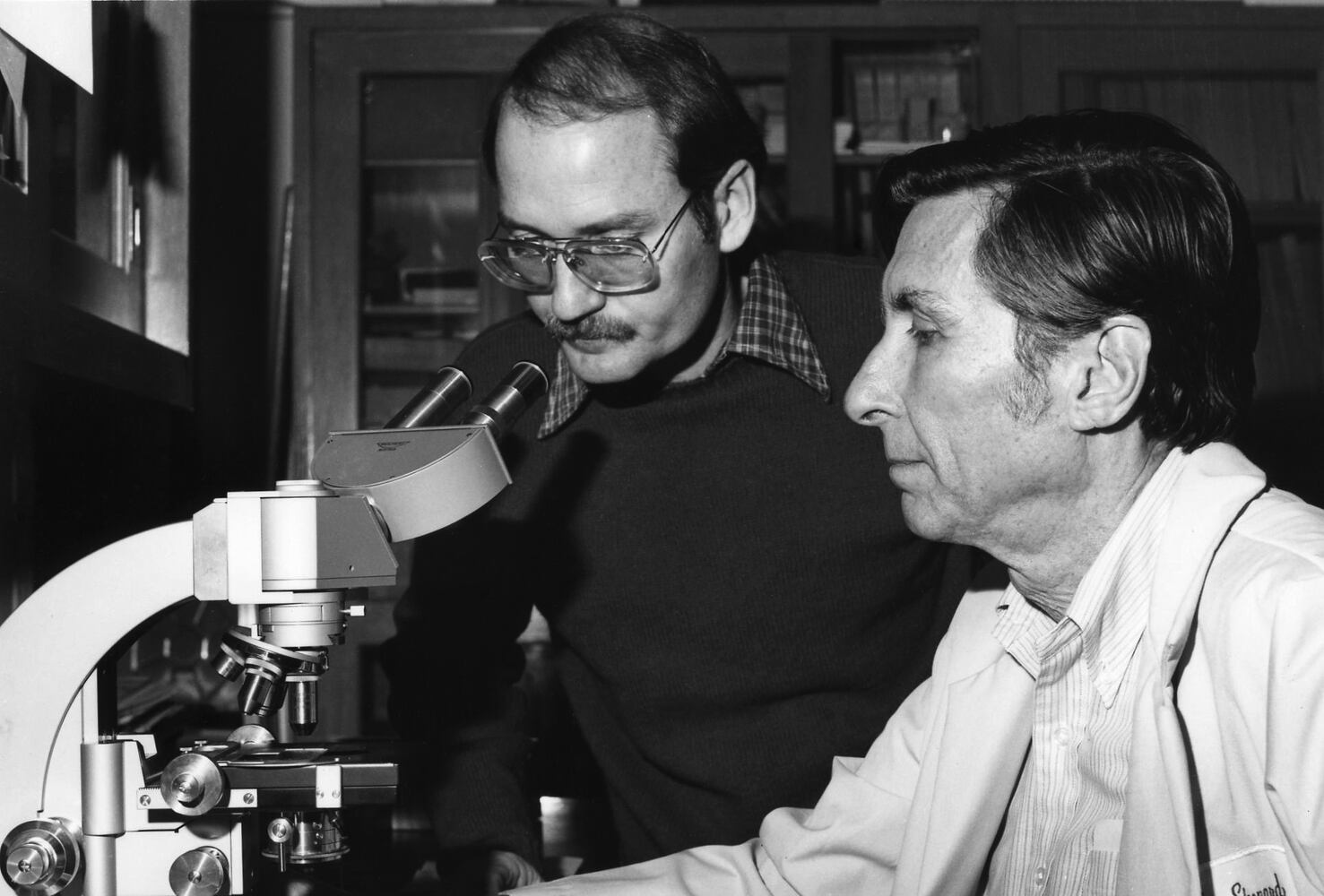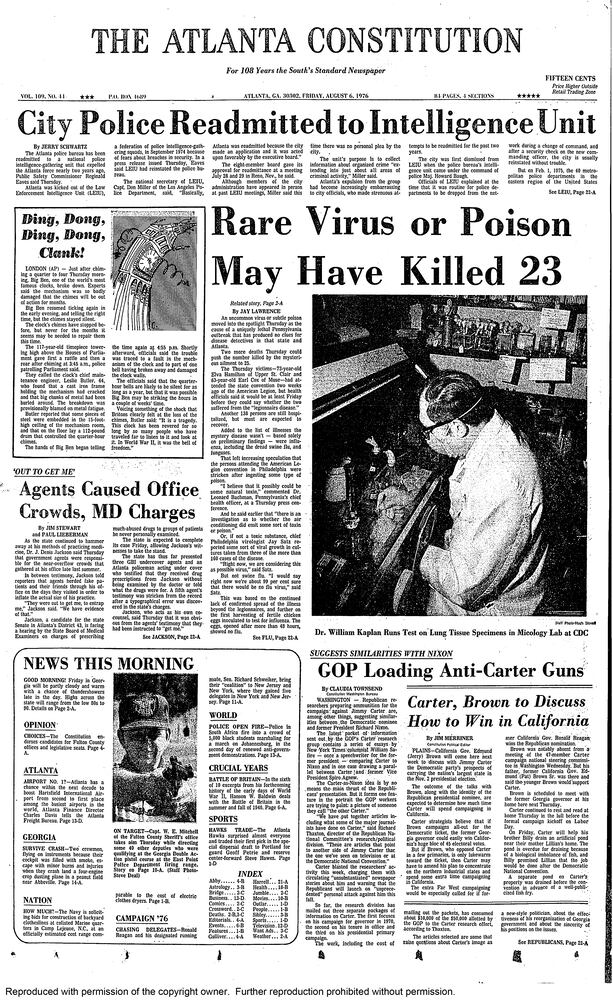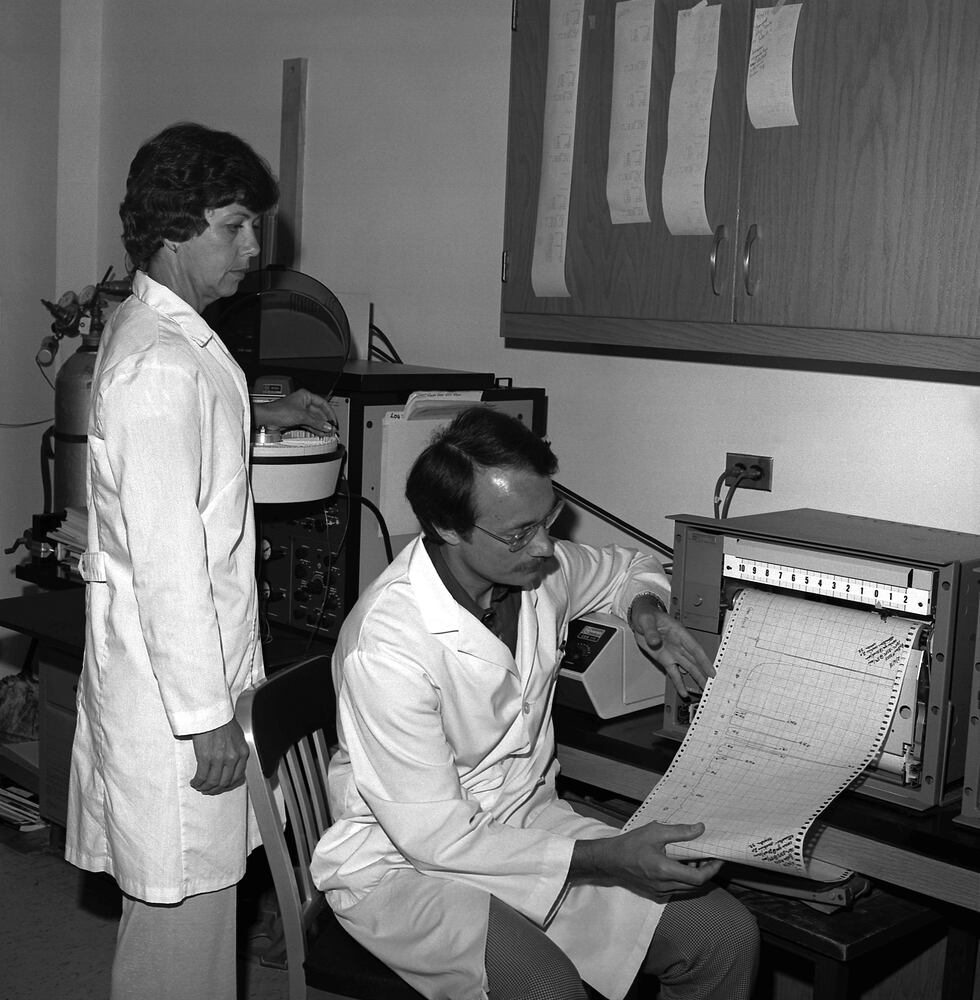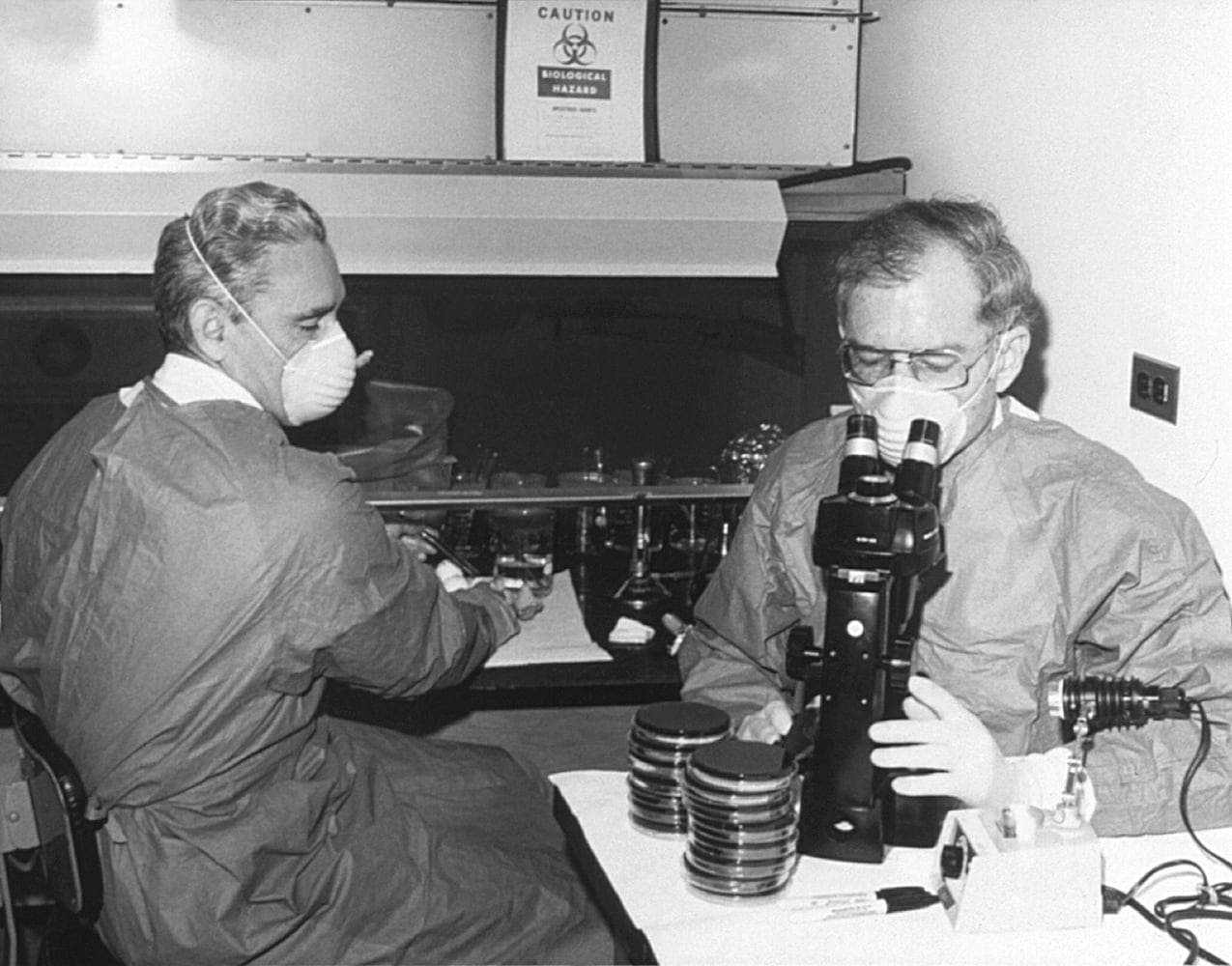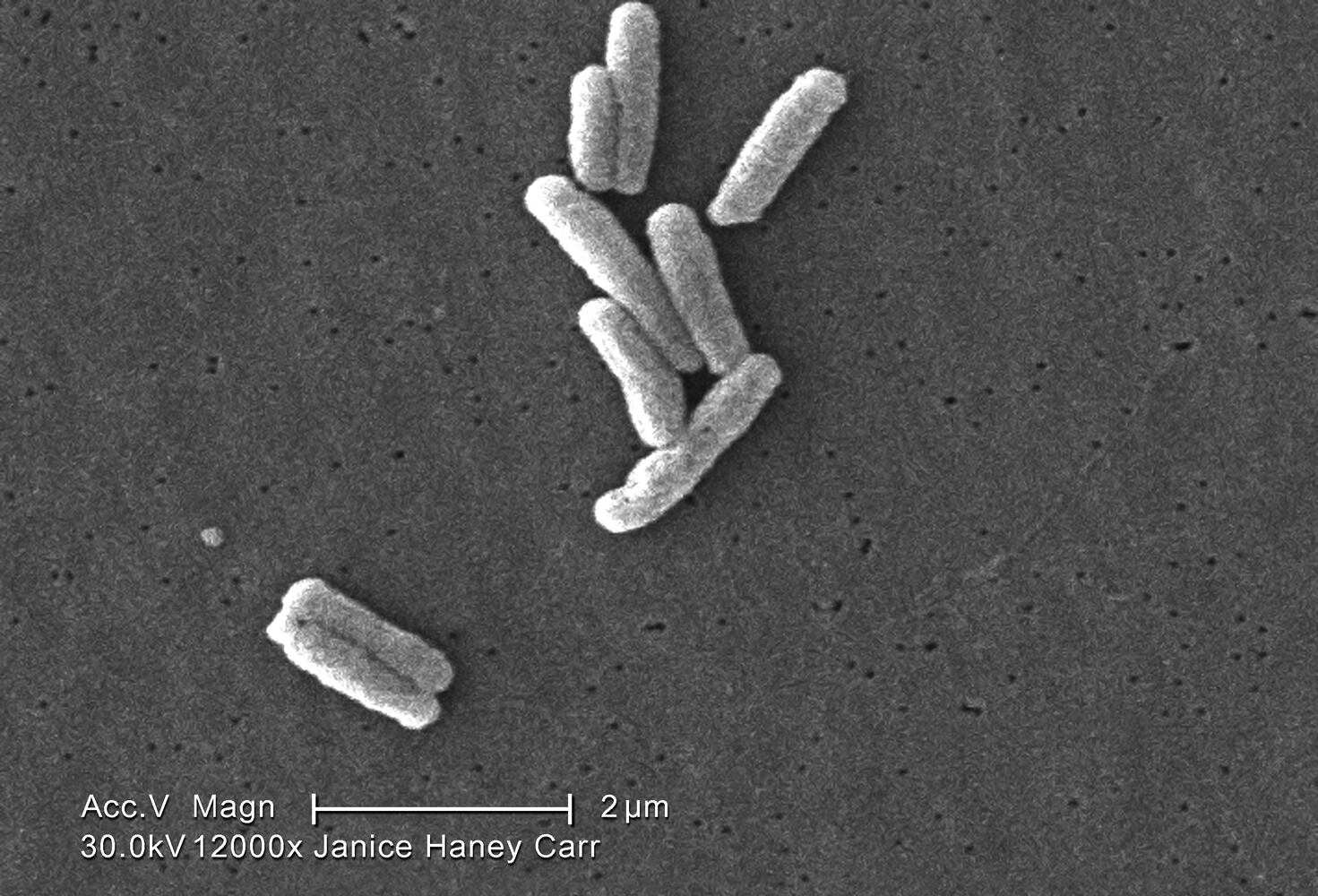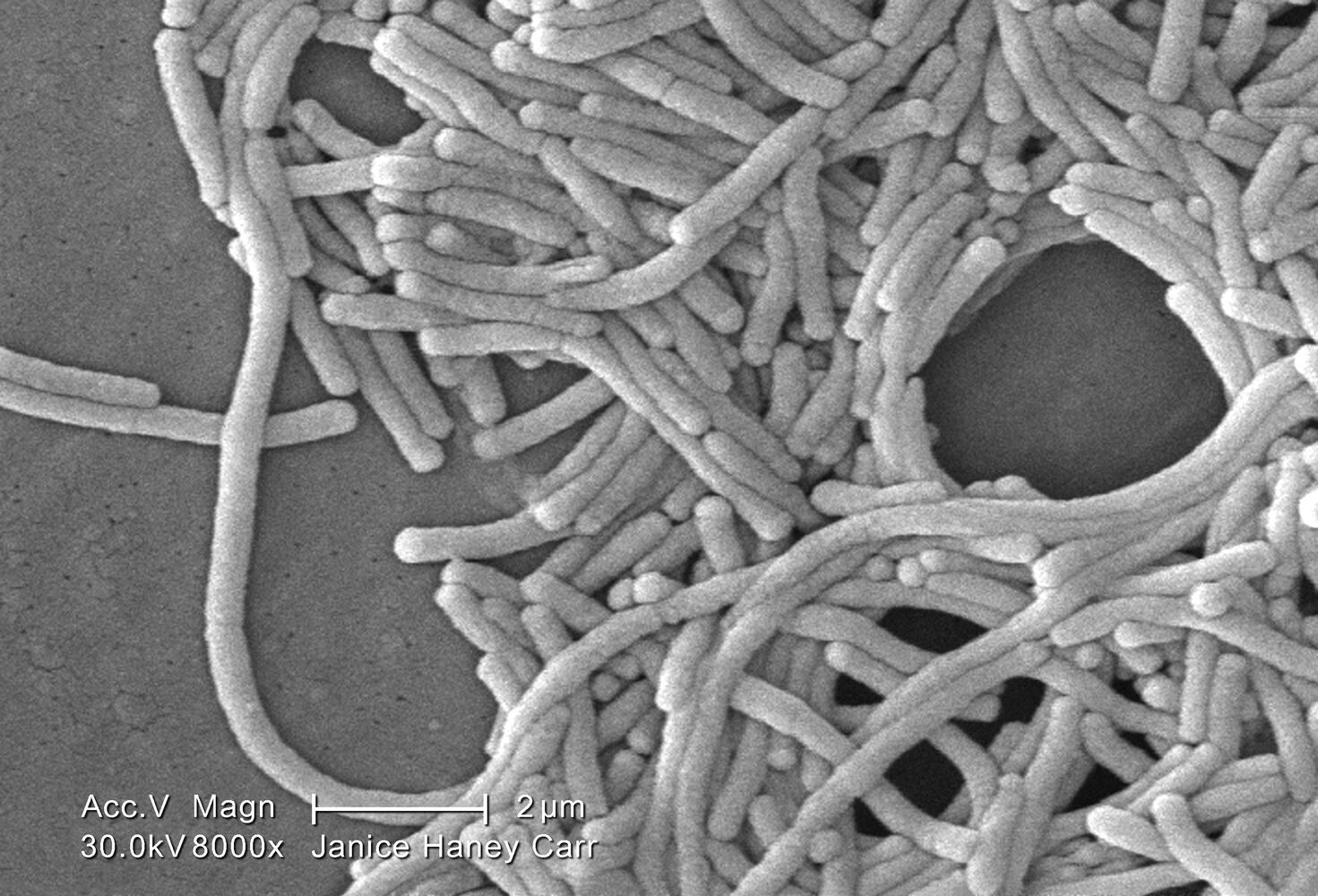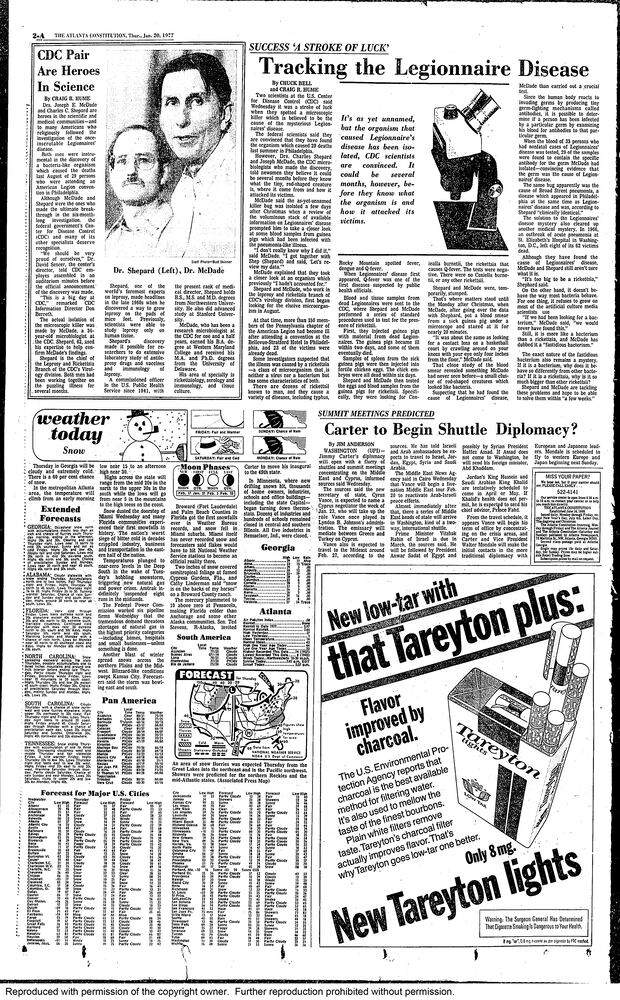Today’s AJC Deja News comes to you from the Tuesday, August 8, 1978, edition of The Atlanta Constitution.
Atlanta’s most recent Legionnaires’ disease outbreak just turned deadly, but this isn’t the first time the illness has proven fatal here.
"One of the people sickened with Legionnaires' disease linked to an outbreak at the Sheraton Atlanta has died," the AJC's Helena Oliviero wrote in an Aug. 6 breaking news report on AJC.com.
“The state health department said there has been a total of 12 lab-confirmed cases of Legionnaires’ disease (including the one death) and 61 probable cases,” Oliviero writes.
LEARN MORE>> What is Legionnaires’ disease?
It's been nearly a month since the Sheraton Atlanta voluntarily closed. The hotel, located on Courtland Street, was slated to remain shuttered until Aug. 11 but may remain closed for several weeks. Investigators haven't yet determined if the hotel is the source of the outbreak.
When a southwest Atlanta man died from a suspected case of Legionnaires' disease in the summer of 1978, health officials focused on Legionella as the likely culprit.
“According to Dr. William Elsea, director of the Fulton County Health Department,” staff writer Frederick Allen reported on August 8, “researchers are looking into five to seven cases of respiratory illness ‘which appear likely (to have been) caused by the Legionnaires’ disease bacteria.”
Elsea told the AJC the victims “fell ill around July 3 and July 4, except the dead man, who contracted the malady about two weeks later and died a week or 10 days after that."
Credit: AJC PRINT ARCHIVES
Credit: AJC PRINT ARCHIVES
MORE DEJA NEWS>> Check out what we’ve covered before (and again)
Although the suspected outbreak was thought to be Georgia’s first “cluster” case, Elsea stressed that Atlantans had no reason to fear a major health crisis. But he wouldn’t offer the paper specifics on the case, either.
“Elsea would not pinpoint the area of the outbreak and said that the death attributed to the disease was to his knowledge the first in the Atlanta area,” Allen wrote, adding that a CDC spokesman stated “five persons have died in Georgia in isolated cases of Legionnaires’ disease since 1976.”
The Atlanta man who died was not identified by Elsea.
An Oct. 26, 1978, report by staff writer Carole Ashkinaze said health officials traced the outbreak to exhaust from a contaminated evaporative cooler in a golf course clubhouse as the reason for the outbreak. The Constitution never identified the country club by name. Elsea and Les Cordes of the CDC “declined to name the club on the grounds that its members [had] not been notified,” Ashkinaze wrote.
Allen’s 1978 report concluded with Elsea stating that investigators hadn’t determined exactly how the disease had been passed among the victims.
That’s something medical investigators are wrestling with at present, too.
"Investigators have been reviewing hundreds of survey responses from people who stayed at or visited the hotel between June 12 and July 15," Oliviero writes.
The DPH told the AJC that going through the surveys could take weeks.
Credit: CENTERS FOR DISEASE CONTROL
Credit: CENTERS FOR DISEASE CONTROL
Legionnaires' disease, so named because it was first discovered after a 1976 outbreak among American Legion conventioneers meeting in Philadelphia, is a type of severe pneumonia caused by Legionella bacteria. If water isn't properly maintained in man-made areas like showers, cooling water systems or hot tubs, the bacteria become potentially dangerous. Legionnaires' disease symptoms include cough, muscle aches, shortness of breath, headache and fever.
"While most cases of Legionnaires' can be successfully treated, about one in 10 people who get sick with the illness will die due to complications, usually due to lung failure," writes the AJC's Fiza Pirani.
The Atlanta-based Centers for Disease Control isolated Legionella in January 1977 after months of intense research following the initial outbreak in Philadelphia which killed 29 people in Pennsylvania while severely sickening over 200 more.
About the Author
Keep Reading
The Latest
Featured
